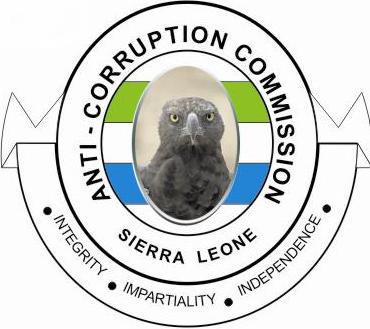UPDATE ON INVESTIGATIONS INTO ALLEGED MISAPPROPRIATION OF IFRC FUNDS MEANT TO FIGHT THE EBOLA EPIDEMIC IN SIERRA LEONE
27th MARCH 2019
Following report from the International
Federation of the Red Cross (IFRC) and the Sierra Leone Red Cross Society
(SLRCS) on alleged misappropriation of IFRC funds, the Anti-Corruption
Commission (ACC) carried out forensic investigations into funds remitted by the
IFRC to the SLRCS to fight the Ebola scourge in 2014-2015. The alleged
financial loss, according to an Audit Report by Price Waterhouse Coopers (PWC) on behalf of IFRC, was claimed to be
equivalent to about Two Million United
States Dollars ($2M USD).
During our investigation, various documents were examined - including the Audit Report of PWC, statements taken from persons of interest including officials of the Bank of Sierra Leone (BSL), the First Bank of Nigeria (SL) Limited (FBN), and the SLRCS. We further sought direct clarifications from the IFRC on issues appertaining to the investigations.
Firstly, our findings confirmed that the amount of Twenty-Five Million, One Hundred and Fifty-Five Thousand, Five Hundred and Fifty-Two United States Dollars (USD $25,155,552) was remitted by IFRC to the SLRCS through the First Bank of Nigeria (FBN). However, contrary to the PWC Report which claimed that some transactions were initiated by FBN without any proper authority to do so, this was not corroborated by our investigations. We were able to establish that ALL transactions appertaining to funds in respect of the Ebola scourge were each initiated by IFRC Foreign Finance Delegates sent to Sierra Leone by IFRC.
Furthermore, contrary to the assertion made by IFRC on standardized exchange rates, verified and confirmed Bank of Sierra Leone regulations stipulate that Commercial Banks are free to set their own forex exchange rates based on the market forces of demand and supply; and also have the latitude to negotiate exchange rates with their customers on a case-by-case basis (otherwise known as “floating rates”). Without seeking any clarification from the BSL, and though they banked with FBN, the PWC auditors proceeded to erroneously use the BSL and Standard Chartered Bank daily average rates culled from online sources as benchmarks to quantify the extent of their loss; which they believe, arose from foreign exchange manipulation, in the region of Two Million United States Dollars ($2M USD).
On another note, it was further established that, six (6) foreign exchange transactions were inaccurately reported by FBN to the Bank of Sierra Leone, which, according to the Banking Act, 2011, warrants a cumulative penal fine of Four Billion, Three Hundred and Forty-Five Million Leones (Le4,345,000,000) on the Bank; but lax banking supervision made the BSL not to detect or even take any action at all for over three (3) years. We have therefore opened Investigations into why the Bank of Sierra Leone failed to identify and penalize this anomaly though they had all the records. We believe, with cogent proof, that forex under-reporting or non-reporting by Commercial Banks as a tool for economic sabotage within the banking sector is systemic and is being done with the connivance and acquiescence of the BSL banking supervisors.
In conclusion, the claim of stolen Ebola Funds in Sierra Leone is speculative and unsubstantiated since IFRC could not provide evidence of fraud. The perceived fraudulent forex negotiations should fall wholly on the IFRC’s Foreign Finance Delegates who authorized all the transactions. The Commission believes that the financial delegates of the IFRC are very crucial to the investigation based on their dealings with FBN; however, all, but one, had been laid off by the IFRC and none is within Sierra Leone to assist us with the investigation.
For further enquiries, please contact Margaret Murray, Public Relations Officer, on Tel: +232-78-832131.
------------------------------------------
PATRICK SANDI
DIRECTOR OF PUBLIC EDUCATION AND OUTREACH




